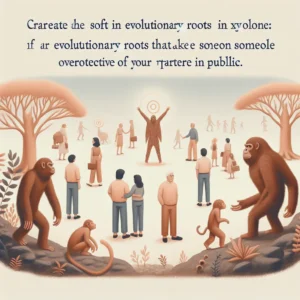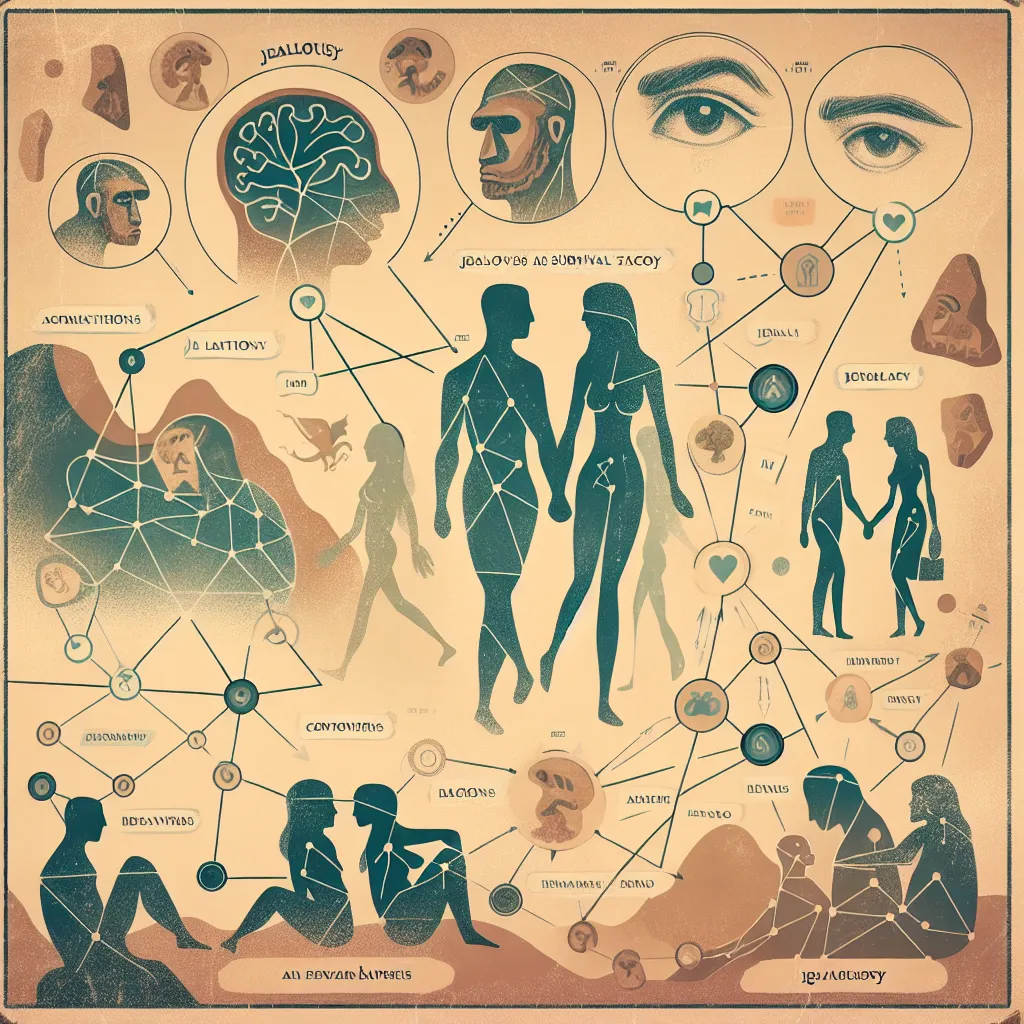Hello, relationship seekers!
Today, we’re diving deep into an important question about relationships: “What evolutionary roots make someone overly protective of their partner in public?”
The Direct Answer
This behavior, known as mate guarding, has its roots in evolutionary psychology. It’s a strategy aimed at preventing infidelity and retaining a romantic partner. Overprotection may result from a deep-seated fear of losing a partner, influenced by factors such as low self-esteem, insecurity, or previous experiences of loss or betrayal. However, it’s essential to balance these protective instincts with a respect for our partners’ autonomy.
Now, let’s explore the extensive evidence and details that support this answer:
1. Evolutionary Roots and Mate Guarding
Mate guarding is a strategy seen throughout the animal kingdom, and humans are no exception. It’s primarily driven by the desire to ensure genetic continuity and to prevent infidelity.
A. The Biological Basis of Overprotection
– Expert Perspectives: Evolutionary Psychologists, like David Buss, argue that mate guarding is an adaptive strategy to prevent infidelity and ensure genetic continuity. They believe our ancestors who successfully guarded their mates had more chances to pass on their genes.
– Psychological Research: Studies show that both men and women engage in mate guarding, though the strategies may vary. Men are more likely to display public possession, while women often use beautification to ward off potential rivals.
– Real-World Examples: Overprotection can manifest in various ways, such as excessive jealousy, controlling behavior, or public displays of possession.
B. Factors Influencing Overprotective Behavior
– Historical Context: Our ancestors lived in environments where resources were scarce, and losing a mate could mean a lower chance of survival for them and their offspring.
– Common Challenges: In modern times, being overly protective can be perceived as controlling or possessive, leading to relationship conflict.
– Practical Applications: Understanding the evolutionary roots of overprotection can help individuals recognize these tendencies and work towards healthy expressions of concern for their partners.
C. The Impact of Insecurity and Low Self-Esteem
Individuals with low self-esteem or high levels of insecurity may be more prone to overprotection, as they fear losing their partner.
2. Psychological Perspectives on Overprotection
From a psychological standpoint, overprotection may stem from deep-seated fears or insecurities, often rooted in past experiences or personal insecurities.
A. The Role of Fear and Insecurity
1. Fear of Abandonment: Individuals with a fear of abandonment may become overly protective as a defense mechanism.
2. Insecurity: Insecure individuals may feel the need to assert control over their partners to alleviate their anxieties.
3. Past Experiences: Past experiences of loss or betrayal can contribute to overprotective behavior in relationships.
4. Attachment Styles: Anxious attachment style individuals are more likely to exhibit overprotective behavior due to their fear of losing their partner.
B. The Impact on Relationship Quality
Overprotection can have a negative impact on relationship quality, leading to conflict, decreased satisfaction, and in some cases, relationship dissolution.
C. The Importance of Balance
While some level of protective instinct is natural and healthy, it’s crucial to balance this with respect for your partner’s autonomy and individuality.
3. Strategies for Managing Overprotective Behavior
If overprotection is causing conflict in your relationship, consider these strategies to manage the behavior.
A. Communication and Trust
– Open Dialogue: Have open and honest conversations about your fears and insecurities.
– Building Trust: Trust is the antidote to overprotection. Build trust through consistent, reliable behavior.
– Respecting Autonomy: Acknowledge and respect your partner’s autonomy and individuality.
B. Seeking Professional Help
If overprotective behavior persists and causes distress, seeking help from a relationship counselor or psychologist can be beneficial.
C. Fostering Self-Esteem
Working on self-esteem can help alleviate the insecurities that often drive overprotective behavior.
4. Additional Context and Considerations
While the evolutionary and psychological perspectives provide insight, it’s essential to consider individual differences and cultural factors when understanding overprotective behavior.
Conclusion: The Definitive Answer
Overprotective behavior in relationships, or mate guarding, is rooted in evolutionary strategies for ensuring genetic continuity and preventing infidelity. However, in the modern context, it often stems from personal insecurities, low self-esteem, or fear of loss. It’s essential to balance these instinctive protective tendencies with respect for a partner’s autonomy and individuality.
Understanding these dynamics can help individuals recognize and manage overprotective behavior in their relationships, fostering healthier, more respectful connections.



